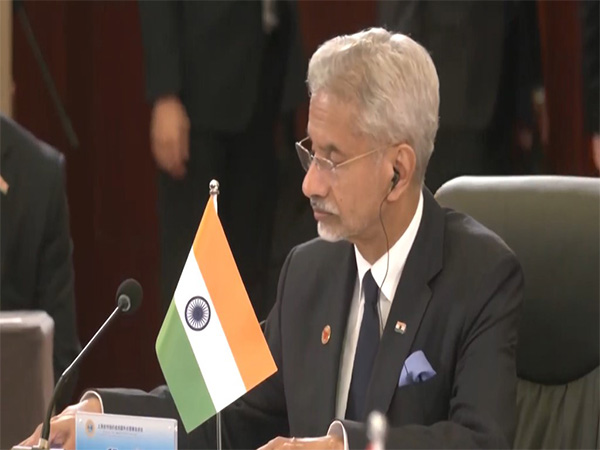
Tianjin: External Affairs Minister Dr S Jaishankar on Tuesday stressed the importance of taking an uncompromising stance against terrorism, citing the recent Pahalgam terrorist attack in India, which was condemned by the UN Security Council during the Shanghai Cooperation Organisation (SCO) Council of Foreign Ministers Meeting in Tianjin.
He highlighted three evils – terrorism, separatism and extremism, which often occur together in his X post. He said, “Recently, we in India witnessed a graphic example in the terrorist attack in Pahalgam on 22 April 2025. It was deliberately conducted to undermine the tourism economy of Jammu and Kashmir, while sowing a religious divide. The UN Security Council, of which some of us are currently members, issued a statement that condemned it in the strongest terms and “underlined the need to hold perpetrators, organizers, financiers and sponsors of this reprehensible act of terrorism accountable and bring them to justice”. We have since done exactly that and will continue doing so. It is imperative that the SCO, to remain true to its founding objectives, take an uncompromising position on this challenge.”
He highlighted India’s commitment to holding perpetrators accountable and bringing them to justice.
Jaishankar emphasised the need for SCO member states to work together to stabilize the global order, mitigate risks, and address longstanding challenges that threaten collective interests, amid rising conflicts, competition, and economic instability.
“In the last few years, we have seen more conflicts, competition and coercion. Economic instability is also visibly on the rise. The challenge before us is to stabilize the global order, de-risk various dimensions and through it all, address longstanding challenges that threaten our collective interests,” the EAM posted on X.
Jaishankar underscored the need for cooperation within the SCO to be based on mutual respect, sovereign equality, and adherence to territorial integrity and sovereignty of member states. He also mentioned India’s initiatives in areas like startup innovation, traditional medicine, and digital public infrastructure.
“India has taken several initiatives in the SCO in domains ranging from startup and innovation to traditional medicine and digital public infrastructure. We will continue to positively approach new ideas and proposals that are genuinely for our collective good. It is essential that such cooperation is based on mutual respect, sovereign equality and in accordance with territorial integrity and sovereignty of member states,” said Jaishankar.
Jaishankar emphasised the importance of addressing current issues, such as the lack of assured transit within the SCO space, to deepen collaboration and promote economic cooperation. He also highlighted the potential of the International North South Transport Corridor (INSTC) to boost regional connectivity.
“Deepening collaboration within the SCO naturally requires more trade, investment and exchanges. For that to move to the next level, it is imperative that we address some current issues. One of them is the lack of assured transit within the SCO space. Its absence undermines the seriousness of advocating cooperation in economic areas. Another is to ensure the promotion of the International North South Transport Corridor (INSTC). We are confident that it will continue to gather momentum,” he added.
Jaishankar stressed the need for the international community, particularly SCO members, to provide development assistance to Afghanistan, while ensuring regional stability and concern for the well-being of the Afghan people.
“Afghanistan has been long on the SCO agenda. The compulsions of regional stability are buttressed by our longstanding concern for the well-being of the Afghan people. The international community, particularly SCO members, must therefore step up with development assistance. India, for its part, will certainly do so.,” added Jaishankar.
